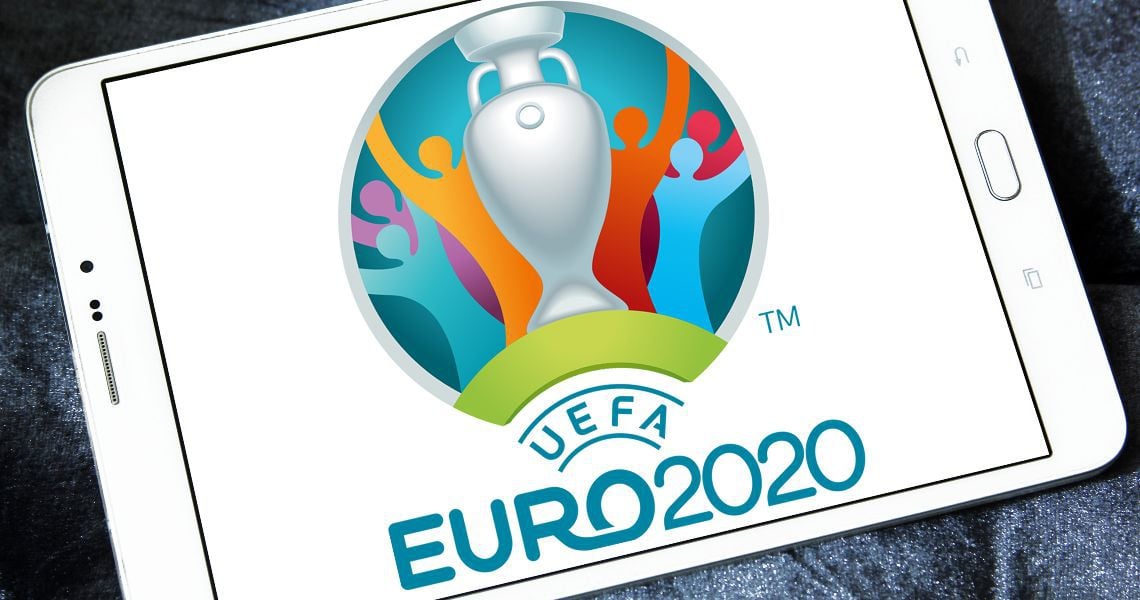The close partnership between UEFA and tokenisation specialist AlphaWallet will bring together for the first time millions of football fans and crypto enthusiasts. And it will do so during one of next year’s most anticipated sporting events: Euro 2020, next year’s European Football Championship.
This is not just another example of a real-life application for the Ethereum blockchain. This is the largest offering of tokenised ticketing solutions in the global sports entertainment industry.
In detail, over 20,000 tickets will be tokenised, providing advantages for everyone: consumers, organisers, venues and participating teams. The group is also preparing other ticket-based services, such as hospitality and transportation.
The starting point for mass adoption of the blockchain
Victor Zhang, CEO of AlphaWallet, explains that the UEFA Exclusive Sales Agent will provide the funds, tickets and authority (trust anchor), while his group will offer the necessary technology. Second only to the world of cryptocurrency,
“event ticketing is the best starting point to mass adoption of blockchain technology”.
“In this industry, all the stakeholders (event organisers, official/non-official resellers, end users, and artists) can instantly benefit from the tokenisation of tickets”. At the Euro 2020, for example, “more than 20,000 new users to experience blockchain technology without even knowing it, as their tickets will already be tokenised and secured on the blockchain”.
AlphaWallet has already tested this new tokenised ticketing system at the 2018 FIFA World Cup in Russia. During the gigantic event, the company tried to solve some of the biggest problems facing the ticket industry. In particular those related to fraud, scalping and lack of regulation in the secondary market.
Tokens solve fraud and scalping problems
AlphaWallet has worked with the exclusive agency working for FIFA to issue tickets using the non-fungible standard ERC875 and TokenScript. Twenty-eight customers who had never handled cryptocurrencies before, used virtual tokens to enter the stadium.
Smart contracts can help solve ticket fraud cases by offering solutions to more effectively regulate the secondary market. They also helps to implement an automated exchange system that allows ticket holders to sell and transfer their tickets to other people safely and smoothly.
As mentioned above, tickets will be issued on the Ethereum blockchain, where an individual and unchangeable ledger is kept and recorded to verify the authenticity of the ticket. This allows the peer-to-peer transfer of tickets, as well as the monitoring of attendance. In addition, this system ensures a certain price stability for even the most important events.
Tokenised tickets can be used across any TokenScript-compatible Ethereum wallet. On AlphaWallet, there is also an Ethereum wallet that can be used to introduce additional blockchain applications to holders of “digital” Euro 2020 tickets.
Tokenisation of the global economy is around the corner
Shankai will further expand the ticketing solution used for FIFA and UEFA into a blockchain ticket/voucher platform that not only allows event organisers to easily issue tickets but will also allow several companies to issue tokenised vouchers for various products or services.
In 2019 alone, there were 941,400,000 digital ticket users for events worldwide. For an understanding of the potential of the ticketing industry, Zhang makes an interesting calculation.
“If we are able to convert 50% of the digital event tickets into blockchain tokenized tickets, the new adoption number is already greater than the current total blockchain users worldwide (42,290,000 )”.
Although the technology is not yet ready for a complete tokenisation of the global economy, according to Zhang:
“It’s close. There are hundreds of missing pieces that need to be developed in order for full tokenisation to occur”.
The manager draws a parallel with the Internet:
“The internet can’t function with multiple “TCP/IP”, and without HTML. We are working on an “HTML” solution for tokenization, which is called TokenScript”.
“Also quite frankly, the business model is not ready either. As tech providers, “everything” becomes protocols and tools; there are no new big platforms like Amazon, Facebook”.
Not to mention the fact that today, ticketing companies are not yet equipped to tokenise ticket rights.
However, there are three factors that will change this. First, the case where “token issuers like tickets and find a direct benefit”. Secondly, there is the possibility that token issuers in another sector, such as insurance, will take the first step, for example by tokenising travel policies as a result of a tokenisation of services. Finally, another possibility could be a growth in the number of crypto users.



